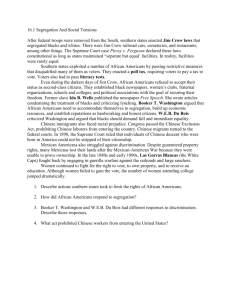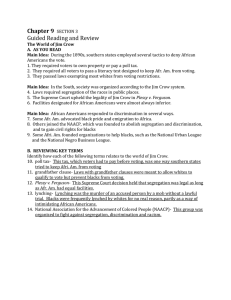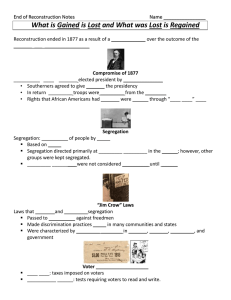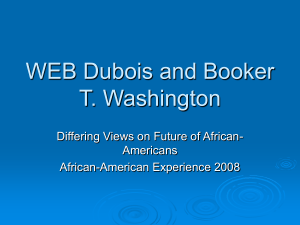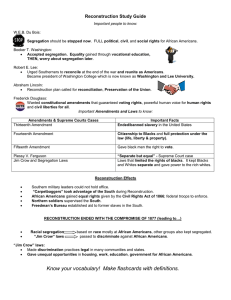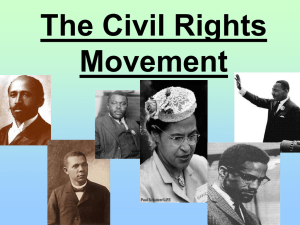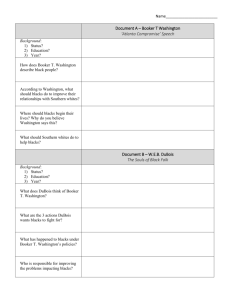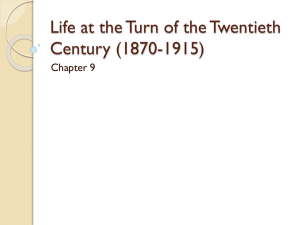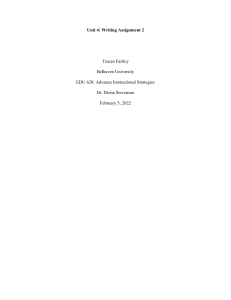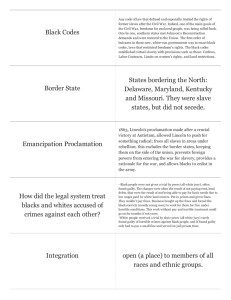Booker T. Washington and W.E.B. Dubois
advertisement
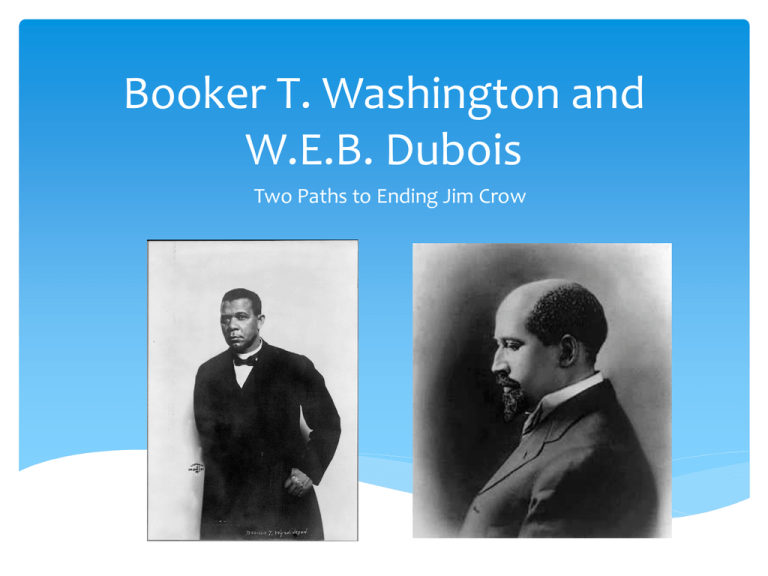
Booker T. Washington and W.E.B. Dubois Two Paths to Ending Jim Crow Civil War Amendments 13th – Ended slavery 14th – Granted citizenship to former slaves 15th – Gave African American men the right to ovte Evolution of Jim Crow Laws Disenfranchisement of African Americans Grandfather clauses Poll tax Literacy tests Intimidation and fear Jim Crow Laws: Systematic StateLevel Legal Codes of Segregation Transportation Schools Libraries Drinking fountains Morgues and Funeral Parlors Plessy v. Ferguson The Case: Homer Plessy, 1/8th black, was arrested for sitting in the “white car” of a Louisiana train in violation of that state’s “Separate Car Act” The case was appealed to Supreme Court Supreme Court Ruling (1896) The Ruling: Separate facilities were lawful as long as they were equal Only one dissenter, Justice John Harlan, wrote “Our Constitution is color blind.” Plessy v. Ferguson The result: Legalized Jim Crow segregation until 1954 (Brown v. Board of Education) Two African American Leaders, Two Diverse Backgrounds, Two Sets of Beliefs Booker T. Washington W.E.B. DuBois Booker T. Washington Born a slave in southwestern Virginia Believed in vocational education for blacks Founded the Tuskegee Institute in Alabama Believed in gradual equality Accused of being an “Uncle Tom” Uncle Tom was the main character in Uncle Tom’s cabin Term came to mean one who was excessively subservient Wrote Up From Slavery (1901) Outlined his views on race at the Cotton States and International Exposition in Atlanta – “Atlanta Compromise” Felt that black people should work to gain economic security before equal rights Believed black people should “earn” equality by demonstrating their skills Developed programs for job training and vocational skills at Tuskegee Institute Asked whites to give job opportunities to black people Was popular with white leaders in the North and South But unpopular with other black leaders Associated with members of the Urban League, which emphasized jobs and training for blacks W.E.B. DuBois Born in 1868 in Massachusetts First African American to received a Ph.D. from Harvard Wanted immediate quality between blacks and whites Wanted classical education for blacks Wrote The Souls of Black Folk (1903) Involved in the Niagara Movement, which led to the NAACP Strongly opposed to Washington’s tolerance of segregation Demanded immediate equality for blacks Felt it was wrong for citizens to have to “earn their rights”
!["What is this [African] American, This New Man?" Booker's Bucket vs](http://s2.studylib.net/store/data/010247134_1-fcc462a83585f7bf7b629277ca194edd-300x300.png)
